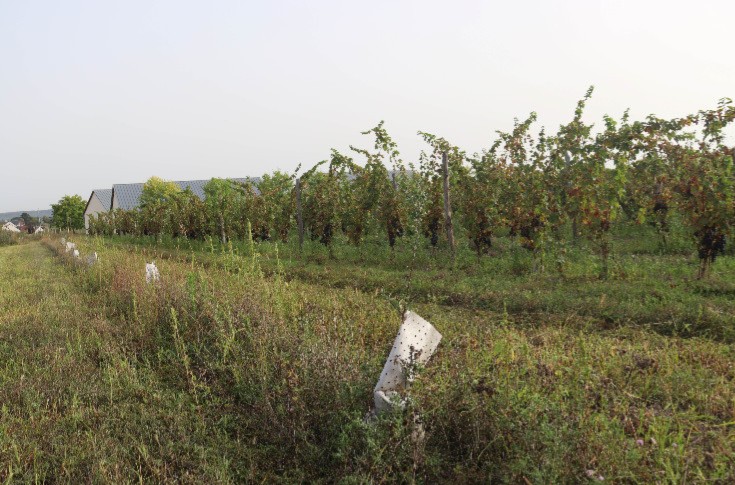An experimental vineyard in Amboise trials agro-forestry techniques

henin and Cot now grow alongside three newcomers to the Loire Valley in Amboise – two southern varietals, Syrah and Viognier, and the resistant variety FlorĂ©al. The French Vine & Wine Institute (IFV) is aiming to trial their performances faced with climate change and health pressure. The researchers planted one hectare of the varieties in 2020 on 1103 Paulsen rootstock, renowned for its drought-resistance capabilities. The vines were planted to two different densities, low at 3m x 1.2m and high, at 1.5m x 1m.
“Tillage between the rows was used on soils in the high-density vines and cover crops are due to be planted. In the low-density block, the soils are farmed using horse-drawn implements. There is very little equipment for vines with wide row spacing and this allows us to study the effects of horse-drawn tillage on the soils”, explains MĂ©lissa Merdy, director of the Amboise branch of IFV. The vineyard will also become a home for spontaneous flora and melliferous plants. Similarly, bat roosts have been installed and the vines are lined with a hedge in places where houses face the vineyard. “The project aims to explore and assess several avenues for coping with restrictions caused by urban sprawl, climate change and the need to reduce inputs, particularly by studying the effect of biodiversity”, adds Merdy. A few months ago, companion fruit trees were therefore planted in the vineyard, namely three rows of the local apple varieties PĂ©pin de Bourgueil, Gros Locard and Belle Fille de l’Indre.






